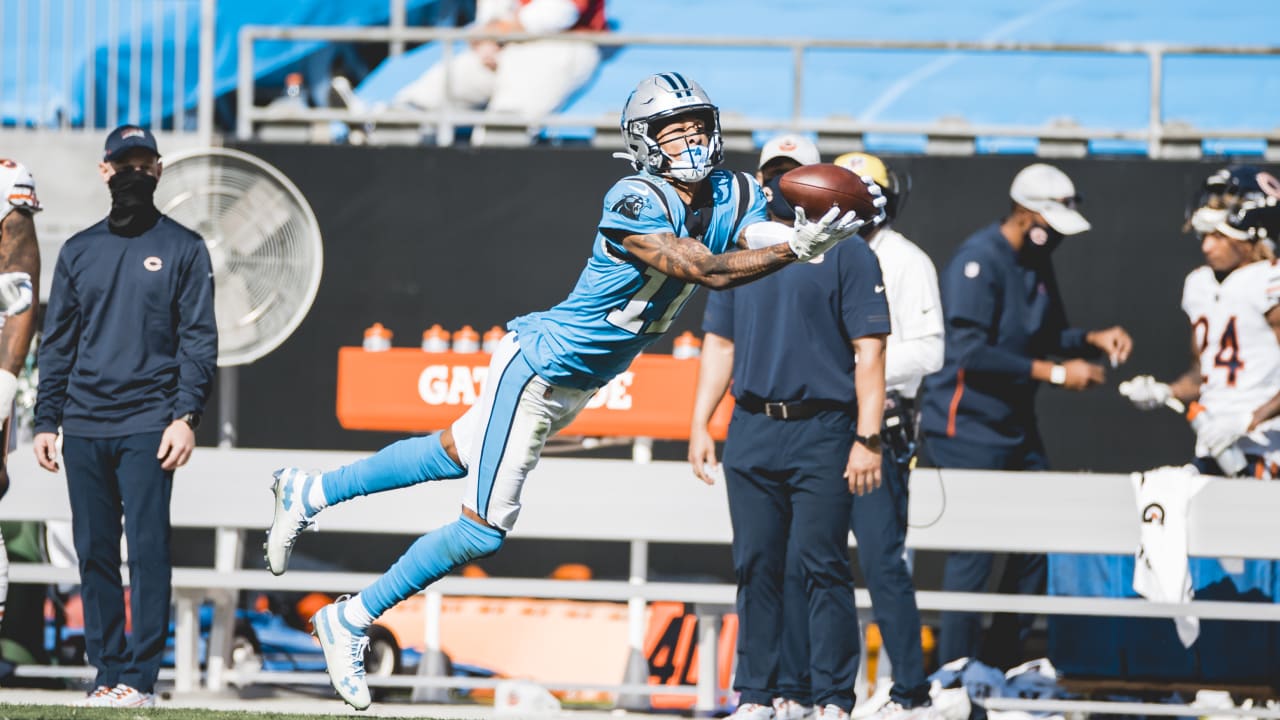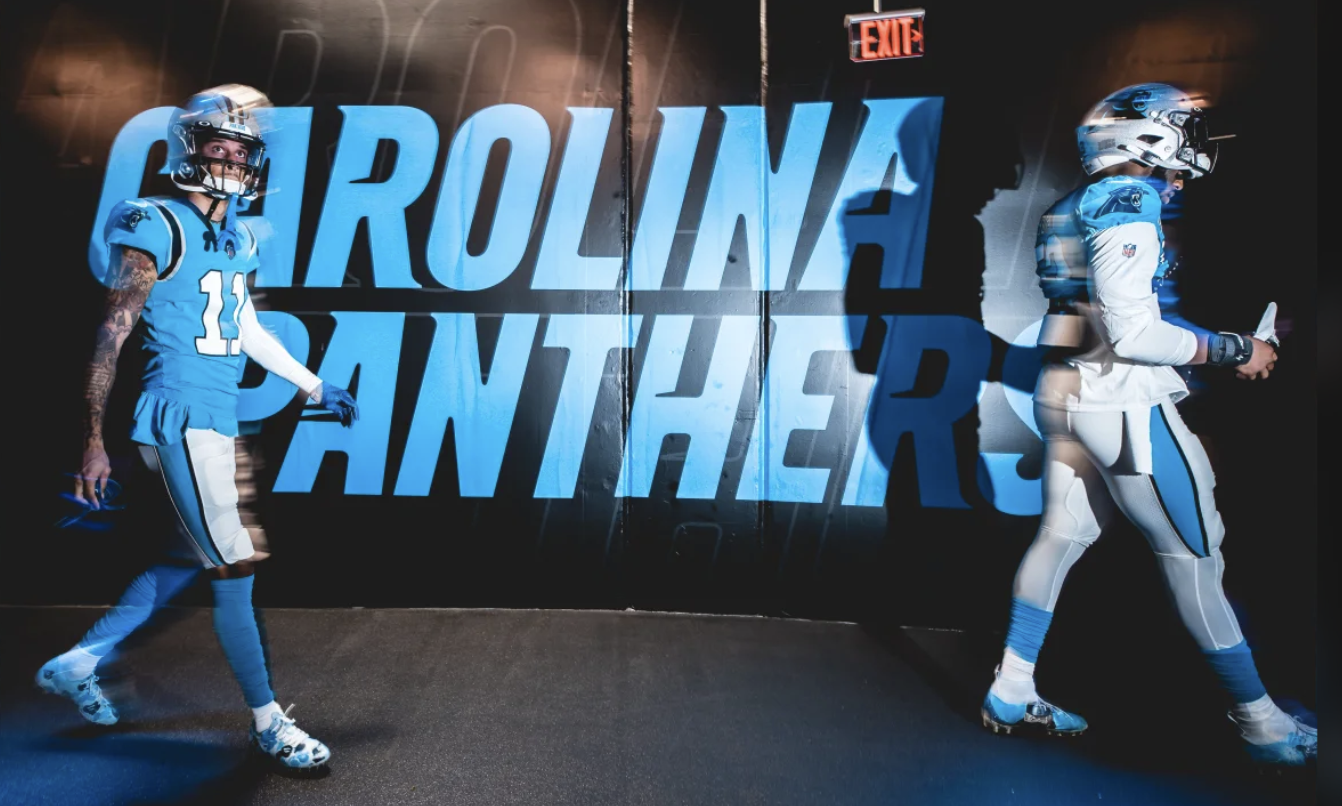In order to truly appreciate what Robby Anderson has become for the Carolina Panthers, you first have to understand what’s going on with the team he left behind.
At 0-6 and the only winless team left in the league, the New York Jets have quickly become the single biggest trainwreck in the NFL and arguably have yet to reach their nadir as the worst team in football. They have been outscored 185-75 with the help of the league’s worst offense and an impotent defense and are on pace for the worst point differential in NFL history. Star running back Le’Veon Bell was cut in part due to insubordination against head coach Adam Gase, and recent comments by defensive coordinator Gregg Williams suggest a mutiny in the coaching staff as well.
New York is in an uproar, with talk radio alight demanding that Adam Gase be fihyud and even going so far as to compare him to Rich Kotite, long considered the worst head coach in Jets history. The players unfortunate enough to be stuck in the situation – including former Panthers guard Greg Van Roten – seem miserable. Jets fans, long suffering enough as it is, are miserable too.
And like any other suffering fanbase, seeing one of their homegrown stars succeed elsewhere has done nothing for their nerves.
Undrafted out of Temple in 2016, Robby Anderson emerged as a star wide receiver for Gang Green with a special penchant for – stop me if you’ve heard this phrase before – stretching the field. Though he played predominantly with aging veterans and backup quarterbacks, Anderson became relied upon as a big play threat that could keep even the best of teams honest – such as in 2017, when he caught two deep touchdowns against a playoff-bound Panthers team that had fits getting past the Jets.
With that gift of explosive plays, however, came a curse: Anderson became typecast as a “deep threat”, with the accompanying narrative that his route tree was limited to simply going fast and going deep. And when Anderson signed on to join the Panthers in free agency, the value that he could bring Carolina’s offense was shrouded in that preconceived notion.
“Is Robby Anderson a role-playing deep threat or a potential No. 1 wideout? Evidence seems to suggest the former as Anderson has caught just 207 of his career 382 targets, and he’s averaged 14.8 yards per catch in the process,” read a piece by Bleacher Report including Anderson among the NFL’s most “overrated” free agents. “He’s still easily been one of the most productive deep threats in the league over his four seasons, which include 20 touchdowns. But his overall game is why Pro Football Focus graded him at a 68.6 last season.”
But where others saw a one-trick pony in Anderson, Matt Rhule saw a player he knew could be more: after all, he had seen it when he coached Anderson in college at Temple.
And he also saw it on the Jets when others may not have noticed.
“I don’t pay attention to labels. I don’t pay attention to those things that are out there – Because they’re out there for everybody,” said Rhule. “I tell our team all the time, everybody’s gonna always try to label you as ‘Hey, you can’t run short, you can’t throw it deep, you can’t play the run’ – I just try to watch the tape. And I think when you see the tape, you see a guy that did all those things at his last stop.
And I knew from college, having him, that he could do all those things.”

Photo Credit: Brandon Todd/Carolina Panthers
In pursuing Anderson, Rhule consulted with wide receivers coach Frisman Jackson, who directly oversaw Anderson while he was at Temple. Then, he asked offensive coordinator Joe Brady – who had no experience with Anderson – to take a look at him. Subsequently, the team’s pro scouts and general manager Marty Hurney gave their opinions as well.
That process – one free of ideas of what Anderson couldn’t do – yielded the conclusion that there was much more to his game than he was being given credit for.
“I just think having a lot of different people, not allowing groupthink, you could see evidence that he could do all these things,” said Rhule. “And just try not to pay attention to what people say about guys – and instead just watch the tape.”
The trust that Rhule places in his staff and their ability to evaluate, make decisions, and coach accordingly is a large part of the reason why he’s wearing Carolina black and blue instead of Gotham green.
Following the 2018 season, Rhule was interviewed for the Jets’ vacant head coaching job and seemed a favorite to return to the same greater New York area he grew up and coached in. However, things fell apart when the Jets reportedly would not allow Rhule to make his own decisions on which assistant coaches to hire.
After consulting with Hall of Fame head coach Bill Parcells – who told him not to take any job where he couldn’t hire his own staff – Rhule stayed put at Baylor.
“At the end of the day, I’m never going to be in an arranged marriage,” Rhule told ESPN 1660 shortly afterwards. “I’m never going to sub-contract out jobs to the offense and defense. I always want to hire people that believe in what I believe, that are going to do things our way, that are going to believe in process, that are going to be part of a program.”
That decision by Rhule has since created a butterfly effect: Adam Gase, who took the job, has become the single most-maligned figure in pro football and likely won’t have it much longer. Meanwhile, the Panthers have reaped the early rewards of Rhule’s philosophy and coaching style. And the Jets who have managed to escape the situation – like Anderson – are thriving in a change of scenery.
Ryan Tannehill is playing at an MVP-level for the undefeated Titans. Kenyan Drake is the lead running back on an exciting Cardinals offense. Pass catchers ignored by Gase in Miami and New York are thriving in non-Gase offenses around the league as the Jets fumble their way to the worst offense in the league.
With 40 receptions for 566 yards and a touchdown through six games, Anderson is currently the second-leading receiver in the entire NFL. Which is, when you boil it down, a product of him being put in a much better situation than the one he left – one where he can truly show he can excel in more than just one aspect of the receiving game.
Thus far in 2020, Anderson has doubled the 3.3 receptions per game he had in four years with the Jets. His catch percentage has gone from 54.2% to 78.4% and he’s averaging 94.3 yards per game this season after 49.3 yards per game in New York – he’s currently on pace for the second-most receiving yards in Panthers franchise history and his 40 receptions through six games is tied for the most in the history of the team.
“Personally, it feels good to me, knowing that what I’m doing is contributing to us winning and adding onto things like that. That’s what kind of really feels the best to me,” said Anderson. “I’ve always been confident in myself and always known what I’m capable of in the sense I always knew what I was working towards and knowing the work I put in is kind of what I’d get out. But it feels good to have great players around me. It makes me a better player as well, and to be in this situation, I’m just real thankful.”
“… I still think that I’m still a deep threat, too. I just think that I’ve just been able to show that I’m an all-around receiver, which I already kind of knew about myself. It’s just the playcalling, opportunities and things like that that lets me show otherwise.”
Every word that Anderson says is a dagger in Jets fans. Fans who – perhaps like Panthers fans were not all that long ago – are desperate for a hero to walk through the door and come save them. Anderson certainly isn’t going to be that hero. Neither is Matt Rhule. They’ve helped open the door to a new era in Carolina.
Ultimately, in football as in life, there are winners and losers in every situation. And in a new jersey far away from the swamps of New Jersey, Robby Anderson looks to have found his greener black and blue pasture.
(Top Photo Via Brandon Todd/Carolina Panthers)

